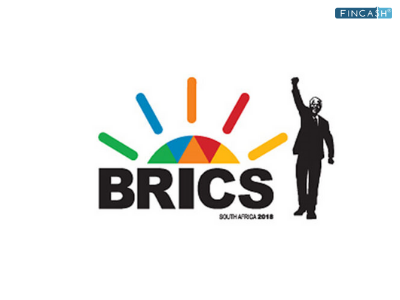
Fincash » Coronavirus- A Guide to Investors » Impact of COVID-19 on the Future of Fintech Industry
Table of Contents
Impact of COVID-19 on the Future of Fintech Industry
The Financial Industry across the world has been prosperous with the growing technology and rise in innovation. One big part of the financial industry is Fintech segment. However, Fintech has not always attracted the attention as it does today. Until a few years ago, it used to a back-office support function for bankers and traders. The companies who invested in Fintech were not even compared to the growing Silicon Valley companies.
But, the past decade has been a boon for the Fintech industry where private venture Capital went through the roof. The investment in the industry grew from 5% to 20%— almost the fair share of Gross Domestic Product (GDP) of the financial industry.
Today, Fintech has found its home in the innovation Economy globally.
What is Fintech?
Fintech is the combination of Financial + Technology. It is a term used to describe a new technology that seeks to upgrade or improve, automate the use and delivery of financial services. This is majorly employed to help companies, business owners and other consumers help manage financial operations and processes.
Furthermore, it is also used to help people across the globe to live upgraded and better lives through innovation via algorithms that are employed in our computers and smartphones.
Fintech now covers a multitude of industries like education, fundraising, retail banking, investment management, non-profit and many more. Fintech plays a major role in the development and usage of cryptocurrencies like bitcoin.
The industry also covers various financial activities that we conduct in our daily lives, such as - money transfers, depositing a check with your mobile phone, raising money for a business start-up, managing your investment, etc.
According to a recent report, EY’s 2017 Fintech Adoption Index, one out of three consumers use at least two or more financial services. Customers are aware of the presence of Fintech.
Talk to our investment specialist
Future of Fintech
1. Impact of COVID-19
With the ongoing COVID-19 pandemic, the industry is suffering just like the other sectors. Since Fintech is existing for only over a decade now, the options for the industry looks limited because of a limited resource pool.
The Fintech industry is also widely dependent on government relief packages and venture capital funding to retain employees and creating a working plan to move forward. According to a recent report, the funding trends for the Fintech industry were found to be heading downwards. The global financing activities directed towards the industry have hit the low in the first quarter of 2020. It is expected that it will resemble the low records as in 2017.
Some well-established Fintech who have received adequate funding have already achieved unicorn status and are showing positive growth. However, Fintech companies involved in unsecured lending sectors or cross-border payments may witness a downfall because of the Market conditions created by COVID-19.
2. Consumer demand can drive change
One of the major factors that affect the funding and growth of a fintech industry is the kind of product or service they deal with. That said, it cannot be denied that the changes in consumer demand due to the pandemic is vast. The curve has shifted to industries that hadn’t garnered much attention before.
Fintech companies involved with banking and business to business (B2B) transactions are lesser vulnerable, to feel the negative impact of the prevailing market conditions. Digital investment management companies, retail trading and brokerage companies, health insurance, multi-line insurance are likely to face low-medium impact while trade finance, unsecured SME lending are expected to impact highly.
Let us take a look at them in detail:
a. Digital Lending
Digital lending does appear to be a strong category in the long-term. However, the current scenario can fluctuate based on the regularity of payments.
b. Digital Investment Services
According to a recent report, Fintech companies in retail brokerage witnessed some of the highest usage numbers early in the Coronavirus affected market as the Volatility was at an all-time high. This can be an expected scenario in the coming future since consumers will continue to react to extreme market fluctuations.
c. Digital Technology Providers
Technology providers witnessed good growth in the early Coronavirus-hit market as traditional banking industry employed digital solutions to meet the consumer’s demands. It can be expected to see this trend in a post-COVID-19 world.
d. Digital Deposits and Savings
It is possible for the deposits and savings industry to grow even during the pandemic. However, the Fintech industry in this area may not see growth due to the lack of trust in the consumer’s end with money- especially during a pandemic. The industry as a whole could see growth by Offering high-interest rates as done pre-pandemic.
Conclusion
The Fintech industry will continue to experience growth. The market fluctuations are expected to experience stability as the people, businesses and leaders across the globe are tackling with the ongoing coronavirus outbreak. As soon as society starts getting settled with the crisis situation, the market will start experiencing growth.
All efforts have been made to ensure the information provided here is accurate. However, no guarantees are made regarding correctness of data. Please verify with scheme information document before making any investment.
You Might Also Like


Covid-19 Impact: Franklin Templeton Winds Up Six Mutual Funds


Best Rules Of Investment From Peter Lynch To Tackle Covid-19 Uncertainty

Brics Assist India With Usd 1 Billion Loan To Fight Against Covid-19

India Likely To Face Decline In Economic Growth For 2020-21 Due To Covid-19

SBI Extends Moratorium To Customers By Another 3 Months Amid Covid-19 Lockdown





